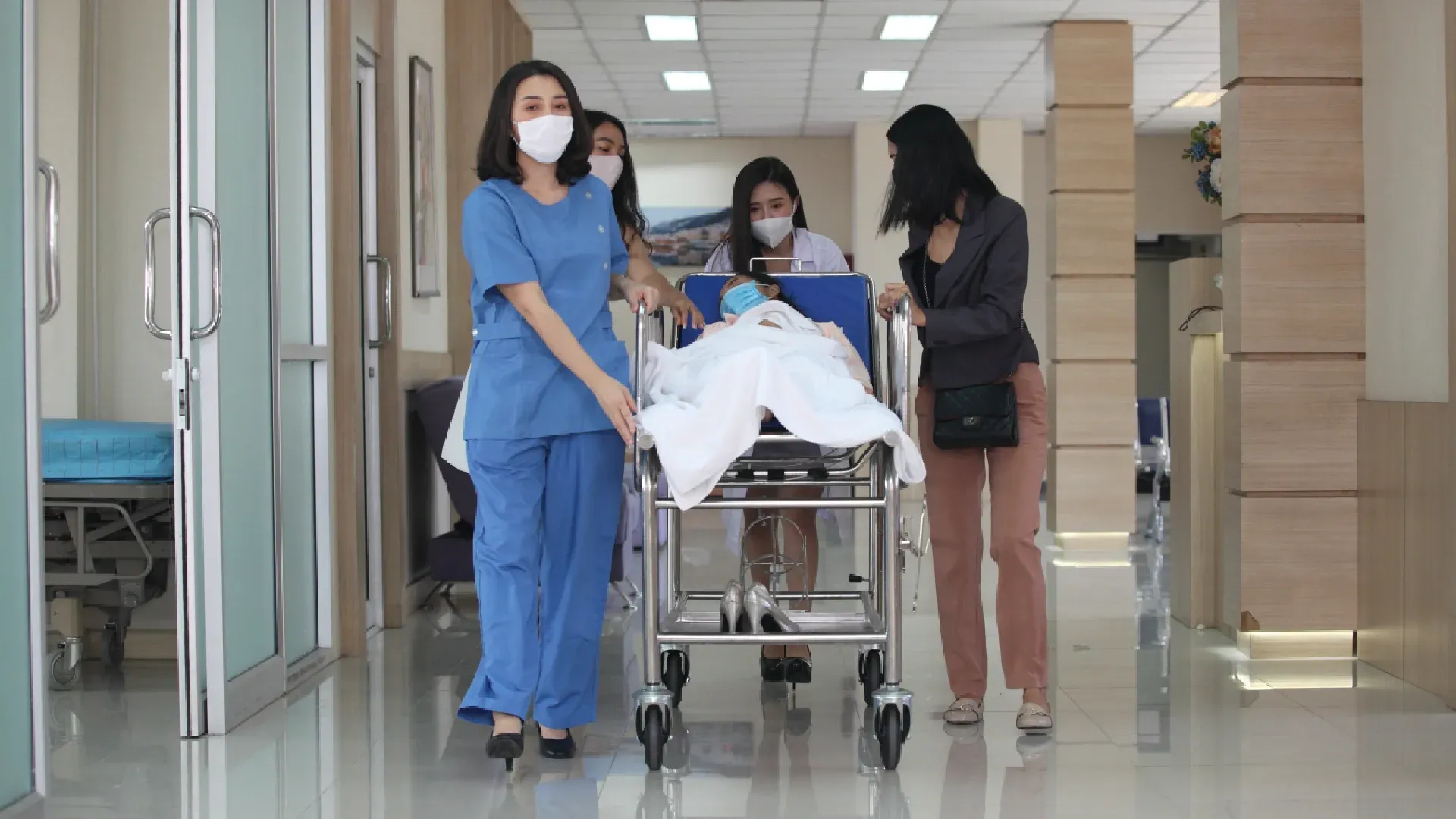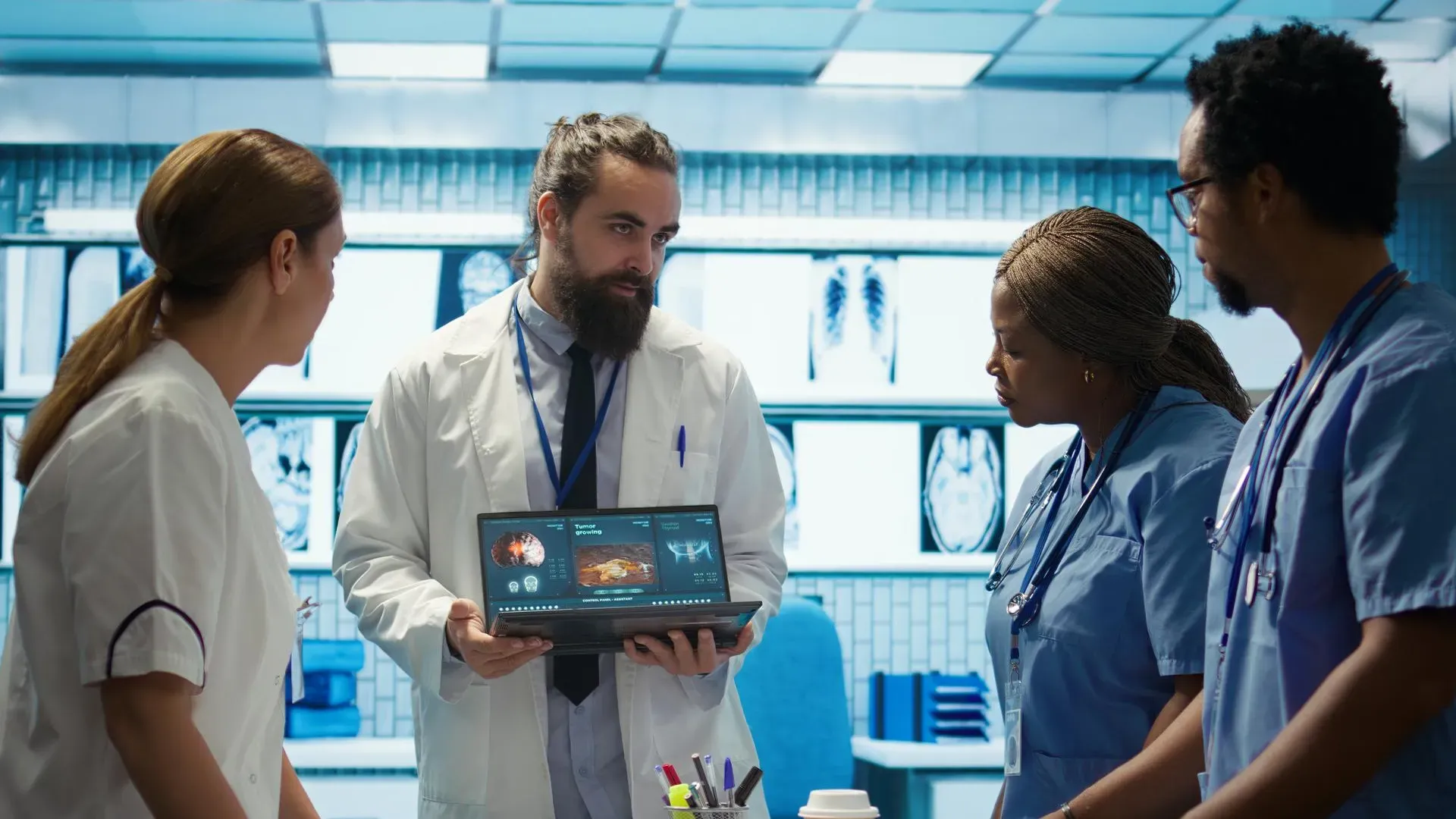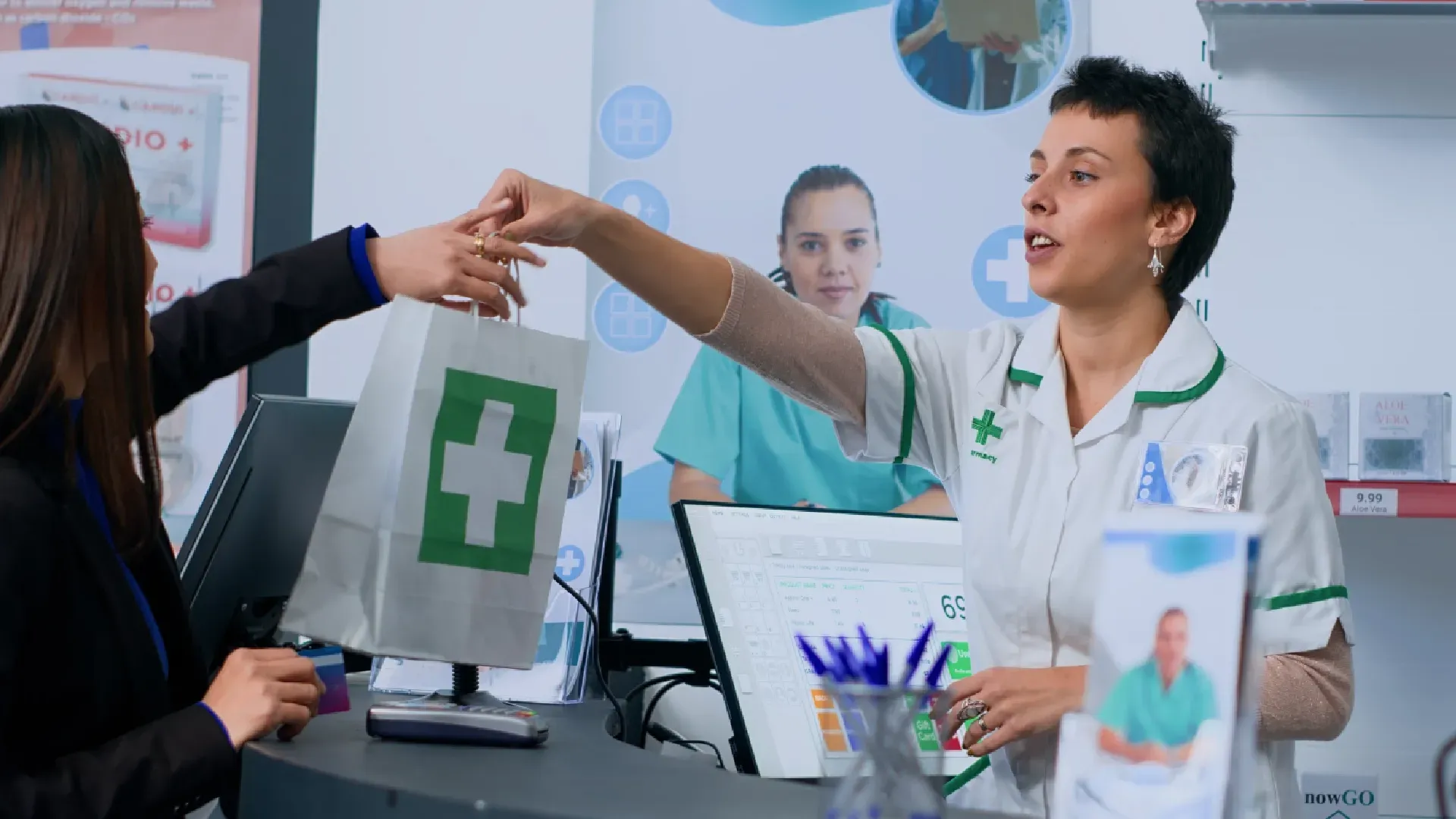Top Qualities Employers Look for in Healthcare Professionals
In healthcare, professionals who excel are in high demand. Beyond the requisite medical knowledge, it's the blend of key personal attributes that employers are keenly scouting for in candidates. Understanding which good skills to have and which qualities distinguish an exemplary healthcare professional from a competent one is crucial. These are the traits that not only bolster the efficiency of healthcare delivery but also enhance the patient experience. With prevalent labour shortages in the healthcare sector, it's imperative that aspiring healthcare professionals tailor their skills and abilities for a resume to reflect the top attributes that employers value, ranging from passion and commitment to highly sought-after soft skills like empathy and communication.
As the healthcare landscape evolves, so do the expectations of employers. They are not just looking for candidates who can perform their duties, but also those who can juggle multiple tasks, adapt to dynamic environments and maintain composure under pressure. The skills and abilities for a resume that stand out include a formidable mix of interpersonal and critical thinking capabilities, coupled with unwavering dedication. This article delves into these essential skills, providing insights into the top qualities such as effective communication, empathy, and problem-solving that healthcare employers seek. Whether you're a seasoned practitioner or just embarking on your medical career, understanding these attributes can elevate your professional trajectory in this noble and demanding field.
Passion and Dedication
In the relentless pace of the healthcare industry, it is the passion for health and well-being that empowers professionals to navigate the emotional and physical rigors of their roles with grace. Whether they are nurses, medical researchers, or therapists, this fervour is a beacon guiding them through the complexities and challenges of their careers. It instils in them a sense of purpose that transcends the allure of income or linear career progression, anchoring them to the fundamental mission of making a discernible difference in the lives of individuals they care for.
The embodiment of dedication can be vividly seen in nurses who commit to rigorous education and hands-on patient care, balancing their professional achievements with an obligation towards continuous learning. By keeping abreast of the latest medical techniques and research, they ensure that their practice is informed and current, offering patients the benefit of cutting-edge care. This dedication is further illuminated as nurses adopt roles beyond basic care provision, serving as advocates, educators, and emotional pillars for their charges, in line with the compassionate principles espoused in the Theory of Human Caring by Jean Watson.
Yet, such devotion can take its toll, and healthcare workers are acutely aware of the need to harmonise their professional lives with personal well-being to stave off the spectres of burnout and mental fatigue. They strive to foster a culture of learning and improvement amidst the pressures of the healthcare environment, recognising that embracing imperfections is part and parcel of their journey towards excellence. This mindset, focused on unwavering passion and dedication, is their compass, guiding them to defy challenges and reap the rewards that come from making a marked difference in someone's life. It is these qualities that employers find most valuable and these same qualities that form the core of good skills to have, reflecting in skills and abilities for a resume that stands out.
Effective Communication Skills
In the healthcare sector, effective communication skills are paramount, going beyond medical expertise to significantly impact patient experience, satisfaction, and outcomes. For healthcare professionals, these skills are intrinsic to the top attributes that employers seek and are central to exhibiting good skills to have on a resume. The four main types of communication within this field encompass interactions between physicians and patients, physicians and families, healthcare providers amongst each other, and crucial internal communications within healthcare organisations.
Understanding the diverse array of communications is essential:
Physician-Patient Interaction: Centred on sharing diagnosis and treatment plans with clarity and empathy, ensuring patient understanding.
Physician-Family Dialogue: Involves keeping family members appropriately informed, respecting patient confidentiality while being culturally responsive.
Provider Coordination: Healthcare providers collaborating effectively to manage patient care delivery, fostering teamwork and minimising errors.
Organisational Communication: Internal communication within healthcare facilities aiding in streamlined operations and coordinated care efforts.
Challenges such as patient distrust, language barriers, and time constraints often impede effective communication. To combat these, healthcare professionals employ strategic approaches:
Embracing Active Listening: Being fully present, encouraging expression, and reflecting understanding to ensure clarity and empathy are felt by patients.
Utilising Plain Language: Replacing medical jargon with easy-to-understand language helps in simplifying complex information.
Implementing Shared Decision-Making: Engaging patients in their care decisions to enhance their compliance and sense of control over their well-being.
Nonverbal cues, alongside verbal communication, play a significant role:
Hand Movements and Facial Expressions: These can greatly reinforce or contradict verbal messages, shaping the receiver's interpretation.
Body Posture: A professional's stance can convey openness, attentiveness, or conversely, disinterest and distance.
A cornerstone of effective healthcare teams is their communication standards, which include:
Goal Clarity: Ensuring each team member is aware of their collective and individual objectives.
Empowerment and Trust: Cultivating a shared belief in each member's capabilities and judgment.
Performance Feedback: Providing constructive criticism to foster improvement and personal development.
Lastly, the continuous education in communication skills throughout a healthcare professional’s career guarantees an ever-improving standard of care, enhancing both patient and clinician satisfaction. This ongoing learning underscores the value healthcare employers place on communication, recognising it as a lifelong component among the skills and abilities for a resume.
Incorporating patient-centred care and nurturing therapeutic relationships not only improves care quality but also professional contentment, thereby demonstrating empathy as one of the good skills to have in healthcare. The shared understanding that arises from effective communication helps prevent or manage health issues and sustains the patient-doctor relationship, pivotal in the patient's journey to health. All these facets contribute to a safer, more compassionate healthcare experience, reflecting why effective communication is truly a skill at the heart of the healthcare profession.
Ability to Multitask
In the dynamic environment of healthcare, multitasking emerges as an integral ability, with a particularly notable impact in high-pressure areas such as emergency departments. Providers and nurses spend a significant portion of their time juggling various tasks; studies suggest that they engage in multitasking activities between 13% and nearly 40% of their time, highlighting its prevalence in daily healthcare operations. This ability to seamlessly manage multiple important tasks simultaneously is undoubtedly one of the good skills to have for healthcare professionals. On a daily basis, nurses often find themselves simultaneously handling scheduled medication administration, monitoring patient vitals, and conducting necessary measurements, with these activities constituting substantial proportions of their workload.
The intricate dance of multitasking involves navigating through challenges such as patients' comorbidities and sudden shifts in their conditions, all within the confines of limited working hours. The typical workflow of nurses is punctuated by frequent interruptions, including incoming phone calls, inquiries from patients or caregivers, and the need to attend doctors' rounds. While these interruptions are part and parcel of the healthcare setting, they underscore the importance of including multitasking among the highly-valued skills and abilities for a resume in the medical field.
However, the reality of multitasking in healthcare isn't without its pitfalls. Evidence has linked it to potentially reduced quality of care and increased professional stress, posing an impact on job satisfaction and even cognitive functioning. Therefore, effective management of multitasking is essential for healthcare professionals. They should aim to:
Recognise interruptions promptly, discerning which tasks require immediate attention and which can be postponed.
Efficiently task switch, maintaining clarity on the priorities and the order in which tasks should be addressed.
Utilise tools and systems to swiftly return to tasks that were interrupted, ensuring that no aspect of patient care is overlooked.
For healthcare professionals to effectively multitask without compromising care quality, it is crucial to make this a conscious act, honing skill sets that include prioritisation, strategic planning, organisation, appropriate delegation, and acute concentration. Real-life examples where these skills are at play include medical assistants navigating their day by triaging phone calls, managing patient schedules, rooming patients, taking and recording vital signs, reviewing patients' health history, assisting during surgical procedures, and handling emergent situations. These scenarios call for a high degree of adaptability and precision, reinforcing multitasking as a coveted attribute among the good skills to have in the healthcare industry.
Empathy and Compassion
Empathy in healthcare professionals goes beyond acknowledging a patient's medical history; it involves understanding and genuinely sharing the feelings of the patient. By fostering such connections, healthcare workers bridge the gap between clinical treatment and personal care, a core attribute among the good skills to have. Patients who perceive empathy from their healthcare providers often experience enhanced relationships, which translates to greater satisfaction with their care, better adherence to medication regimens, and a decrease in the likelihood of malpractice claims.
In the pursuit of optimal health outcomes, the expression of empathetic behaviors plays a significant role. Patients consistently report higher levels of satisfaction when the healthcare professional demonstrates a true understanding of their emotional state. Education and continuous professional development focused on empathy are pivotal, though it's noted that levels of empathy can wane over the course of training and in clinical practice. To counter this, empathetic communication skills development should be a primary objective, with education systems adopting creative methods such as:
Role-Play: By walking in their patients' shoes, healthcare students can develop a deeper understanding of the patient perspective.
Simulation Games: Interactive scenarios can challenge students to respond to a variety of emotional cues.
Empathetic Modeling: When professors and supervisors exemplify empathy, it encourages students to emulate these valuable behaviors.
Regular Supervision: An essential tool for social workers to process and reflect on their feelings, fortifying their capacity for empathy.
Personal factors like inherent characteristics and professional identity can substantially influence empathy, but they are not the sole determinants. External factors such as the work environment and situational stressors also have sway, affecting the depth of empathetic care provided. High patient volumes and limited consultation time may impinge upon a healthcare professional's ability to fully engage empathetically, pointing towards the need for systemic support to nurture this soft skill. Therefore, skills and abilities for a resume should highlight a candidate's capacity for empathy, signaling to employers a commitment to patient-centred care that supports both their professional identity and the values of the institution.
Problem-Solving Skills
Healthcare professionals, such as care workers in the UK, recognise that honing problem-solving skills is pivotal for career advancement, cost efficiency, and meeting the diverse needs of clients. These skills are a crucial component of the good skills to have for individuals in this sector. Paramount to these are:
Critical Thinking: Applying logical reasoning to accurately assess situations and determine necessary actions.
Creativity: Thinking outside the box to find innovative solutions, especially when traditional methods are inadequate.
Analytical Skills: Breaking down complex issues into manageable parts to evaluate different aspects of a problem.
Decision-Making: Choosing the most appropriate course of action from a range of possible solutions based on evidence and experience.
Learning Skills: Continuously updating knowledge to improve problem-solving strategies and adapt to new challenges.
To effectively tackle problems, care workers in healthcare settings engage in:
Active Listening and Communication: Establishing clear communication with patients and colleagues to fully understand the context and nuance of each issue.
Problem Identification and Assessment: Determining the core issues and assessing the impact of potential solutions.
Resourcefulness and Adaptability: Using available resources creatively and adapting to swiftly changing scenarios.
Collaboration and Teamwork: Working alongside others to pool knowledge and expertise for a comprehensive resolution.
Stress Management and Self-care: Maintaining personal well-being to ensure a clear, focused approach to problem-solving.
Research has shown that social problem-solving training can substantially improve a nurse's decision-making and critical thinking abilities. This type of professional development ensures that nurses can approach each challenge with the necessary skills to devise effective solutions.
While communication skills and comprehension of the patient’s condition are often seen as significant indicators of professionalism, the nurse’s problem-solving capability, though not always highlighted as strongly, is equally essential in the real-life context. Enhancing both the problem-solving and empathy skills of nurses is seen as integral to identifying and resolving the nuanced difficulties encountered in healthcare service delivery. These dual focuses enrich the skills and abilities for a resume and signify a robust, patient-centred approach that healthcare employers value immensely.
In conclusion, while problem-solving may not have a statistically significant direct impact on perceptions of professionalism, its role in facilitating high-quality healthcare service cannot be overemphasised. A nurse who can adeptly navigate the complex web of patient care issues, armed with good problem-solving skills, becomes an invaluable asset to any healthcare team.
Adaptability and Flexibility
In the fast-paced healthcare industry, adaptability and flexibility are not just desirable qualities; they are crucial for professional growth and ensuring the delivery of quality care. Continuous learning is required to keep abreast of advancements in medical knowledge, policy shifts, and the evolving needs of patients. Hospitals and healthcare professionals who exhibit flexibility can adapt to changing circumstances, a trait which has proven invaluable, particularly during the COVID-19 pandemic where public policy championed health information and technology to navigate through the crisis efficiently.
The emphasis on adaptability and flexibility extends to workforce dynamics. Employees' willingness to learn new skills and embrace change is a proposed solution to address not only staff shortages but also to meet patient needs effectively. This ability to pivot and reskill is seen as an essential component among good skills to have and vital for skills and abilities for a resume:
Embracing Healthcare Agility: An agile environment in healthcare promotes stability and is better equipped to handle uncertainty, leading to improved outcomes and sound business operations.
Cultivating a Growth Mindset: Healthcare professionals should interact collaboratively, stay updated on technological advances, and regularly engage in self-assessment to boost their adaptability.
Public Policy and Technology: Flexibility through health policy fosters a nimble response to changing healthcare landscapes, proving crucial during emergencies such as pandemics.
The benefits of flexibility in the healthcare sector also translate into enhanced job satisfaction and happiness among professionals. Nursing agencies, such as VNS, understand the importance of offering flexible schedules that fit into nurses' lives, thus promoting a balance between work and personal life. This flexibility can revolutionise healthcare accessibility and responsiveness, bypassing the need for lengthy and costly training regimes and allowing resources to be distributed effectively.
To further solidify the adaptability and flexibility in the healthcare workforce, six principles can be applied, encompassing:
Evaluating health system performance from the patient's viewpoint.
Cutting down on the time required for professional training.
Focusing on regulating tasks and competencies rather than entire professions.
Empowering practitioners to operate to the full extent of their capabilities.
These principles leverage workforce flexibility to optimise healthcare delivery, making it timely and efficient, and they underpin the skills and abilities for a resume that shine in the healthcare profession. As good skills to have, adaptability and flexibility not only prepare healthcare workers for the present but equip them to respond adeptly to the healthcare challenges of the future.
Conclusion
In summary, this article has explored the essential traits that healthcare employers prioritise in their professionals—passion, effective communication, multitasking abilities, empathy, problem-solving skills, and adaptability. Collectively, these characteristics not only enhance patient care but also empower healthcare workers to navigate the demanding and evolving field of medicine. The discussion has reinforced the significance of cultivating these traits, emphasising their contribution to the personal and professional development of healthcare staff, and the overall betterment of patient outcomes.
It is clear that the interweaving of these skills shapes a healthcare professional's ability to provide care that is both empathetic and efficient. As the sector continues to grow, the demand for professionals who embody these qualities will persist, mandating a workforce that is committed to continuous learning and improvement. Future studies and policies should further support the development of these attributes, in recognition of their profound impact on the quality and delivery of healthcare services.










All Rights Reserved 2024 | Privacy Policy | Powered with 🤍 by Shazamme

